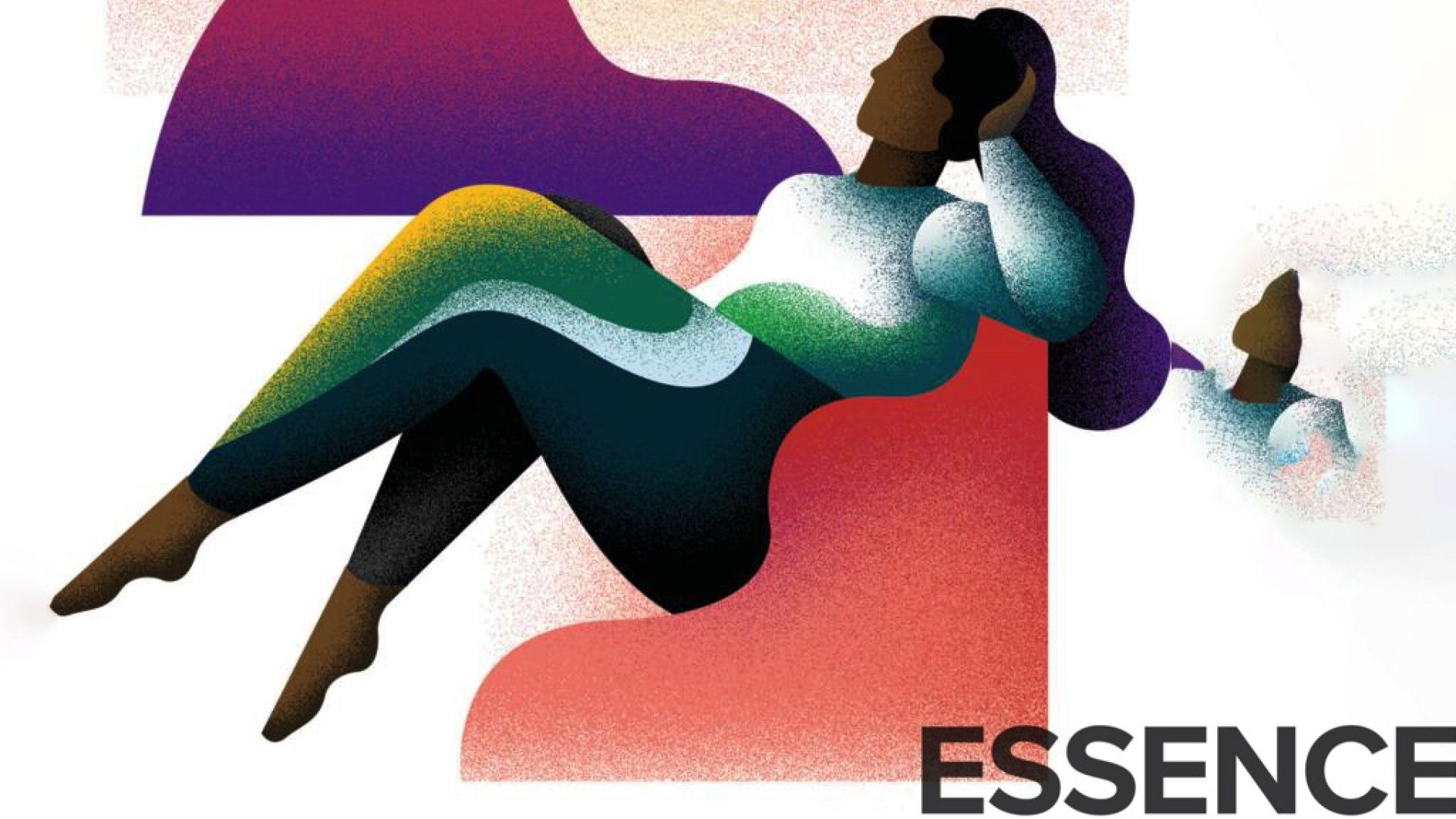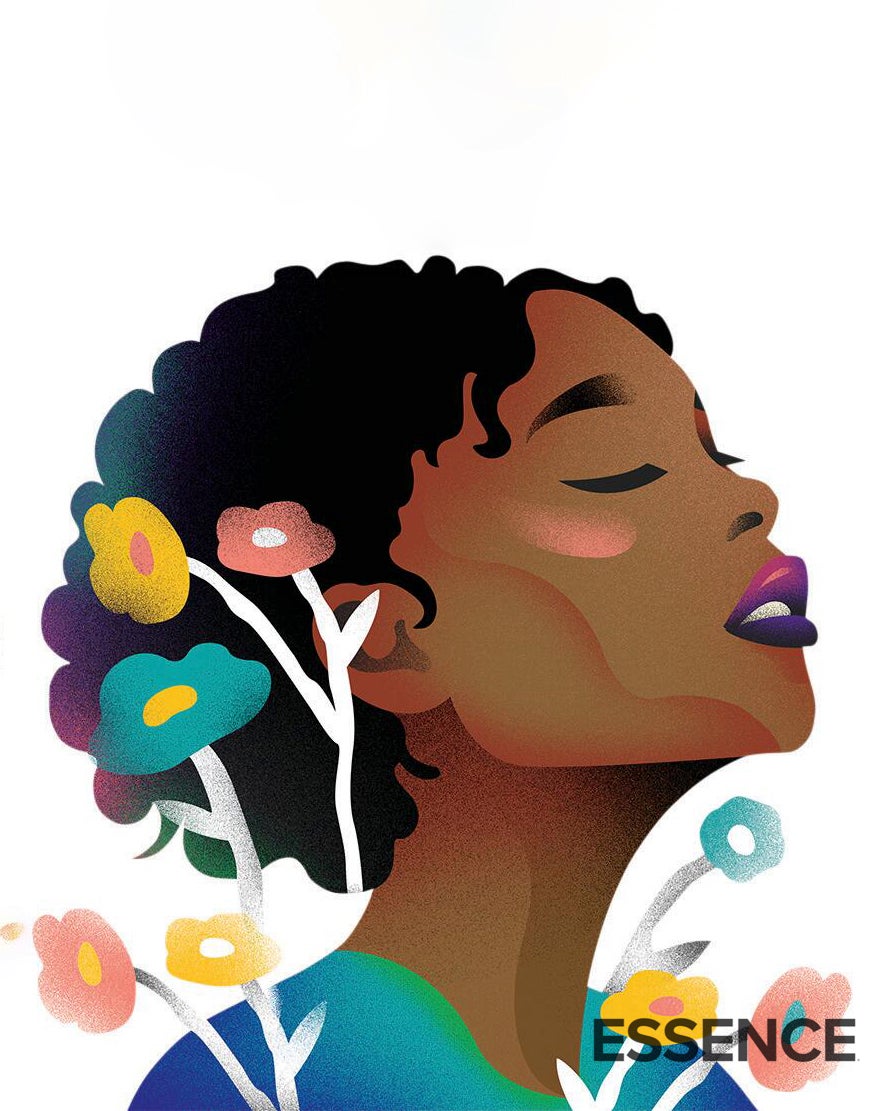
By now, you’ve probably seen aesthetically engaging social content with the hashtag #softlife go viral on TikTok or Instagram. Perhaps you’ve wondered where the trend came from—and why it has become so popular among Black women. With 742.0M million views and counting on TikTok, and 209,000 posts on Instagram, it seems to be transforming into a lifestyle. The term actually originated in the Nigerian influencer community as a concept around intentionally seeking comfort, peace, and rest—a movement that Black women have needed for some time.
For Black women who are divesting themselves of the harmful “strong Black woman” trope, the #softlife doesn’t simply mean having an abundance of wealth, luxury, and status. As many of us release the social pressures of being seen as tough and resilient, we’re also beginning to opt for wellness, prioritizing our mental health by identifying our limits and standing firmly in regard to them. Prompted by the #softlife idea, we’re allowed to ask, “Am I choosing joy? Is my wellness top of mind for me?”
Although there have been critiques about the movement being rooted in unrealistic and unachievable opulence and luxury, it has much more to do with valuing a wellness mindset and incorporating balance into your life. You can be a hard worker but also love and recognize the need to rest and reset. It’s about establishing healthy boundaries to cultivate daily enjoyment, comfort, and ease.
As more Black women learn about the #softlife concept, they are beginning to define it for themselves and participate in their own way. As a result, #softlife content on social media has quickly shifted from displaying only fine dining, materialism, and exotic locations. It now includes educational posts about the importance of self-care and mental wellness—and instructional videos explaining how to live softer. Transparent & Black, a wellness collective founded in 2019 by Yasmine Jameelah, characterizes the #softlife approach as an act of radical wellness meant for every kind of Black woman.
“Wellness is an extension of soft living, so anytime that you’re discussing what’s best for Black women and encouraging them to prioritize themselves, you’re discussing soft living,” Jameelah says.
Perhaps Audre Lorde said it best in her 1988 book of essays, A Burst of Light, “Overextending myself is not stretching myself,” she wrote. “I had to accept how difficult it is to monitor the difference. Necessary for me as cutting down on sugar. Crucial. Physically. Psychically. Caring for myself is not self-indulgence but self-preservation, an act of political warfare.”
For psychotherapist Meghan Watson, founder of Bloom Psychology & Wellness, the #softlife means a life marked by tenderness, vulnerability, slow living, intentionality, ritual, and purpose. “When I think about living a soft life, I see it as a way of being rather than an achievement to unlock,” she says, reiterating that #softliving is more of a mindset and a lifestyle commitment than a passing fad. “It marks a return to simplicity and being well, without having to resort to rigid beliefs, tough love and resilience by overproductivity,” she says.

“It’s all about what wellness means for you. Self-care and wellness don’t need to be overcomplicated, nor does it have to look one way.” Watson adds. Instead, she explains, it’s more about the intention behind what you do, rather than what you have or have acquired. “Leisure and luxury can only be accessed through engaging in hustle culture or a capitalistic mentality, which might feel like the opposite of soft living,” she notes.
Watson has seen the emotional damage Black women experience due to spreading themselves thin. “[For Black women,] we’ve been told that being resilient and enduring pain is a form of personal victory and triumph,” she says. “Living a soft life is in complete opposition to that. It emphasizes ways we can thrive without having to endure hardship and pain first.”
When it comes to Black women benefiting from a life of ease and peace, Watson insists it’s a no-brainer. “#Softlife teaches Black women that we don’t have to harden against the world to live freely in it,” she reflects. “I think it’s a way of showing ourselves that we deserve peace, mindfulness, wellness and beauty in our lives—especially when we get to be creative about what that looks like, as opposed to someone else defining it for us.”
Creativity, slowness and freedom allow us to reclaim our time to pour into our mental health. “How meaningful might it be for our mental health if we released expectations around having to be tough all the time, and instead embraced our vulnerability?” she asks.
Priscilla O. Agyeman, M.P.H, is a digital content creator and public health professional and the founder of Saddie Baddies, a virtual safe space where Black and multiracial people can destigmatize mental health and initiate collective healing. She has joined in on the #softlife movement and dissects the practice with her audience. Dedicated to bridging the gap between mental health awareness and minority communities through digital discourse, Agyeman offers relevant content, such as the podcast The Soft Life with Saddie Baddies. She believes that #softlife is more about autonomy, intentional choices and a mindset than about financial freedom—and pressure to earn is something we must strip to attain it.
“Of course, having the financial means to make healthy choices for yourself is a privilege,” she says. “However, you can be a high earner but still make choices that do not center care, tenderness or balance in your life, especially if you’ve been conditioned or expected to do everything the hard way.”
“[For Black women] we’ve been told that being resilient and enduring pain is a form of personal victory and triumph. Living a soft life is in complete opposition to that.”
So is the #softlife concept truly attainable for Black women? Absolutely, Agyeman says. She believes that we just need some help to maintain this way of living.
“Not only is it attainable for Black women, but we also need the environment and support system that promotes softness,” she adds. “Internally, we can make the choices to rest, say no, ask for help and prioritize ease—but it requires a collective unlearning of being identified solely as ‘the Strong Black Woman.’”
Watson agrees, noting that the sooner we stop leaning on such a trope—and are kinder to ourselves as we attempt to adopt the practice of living a softer life—the better off we’ll be. “The stereotype of the ‘Strong Black Woman’ can be really harmful,” she notes. “I’ve seen firsthand how that can damage Black women, by way of emotional, mental and physical burnout.”
“Black women deserve the space to live and grow in soft ways,” Watson adds. “The key is to not overcomplicate the journey to a soft life mindset. Take your time, and try not to judge yourself too harshly along the way.”